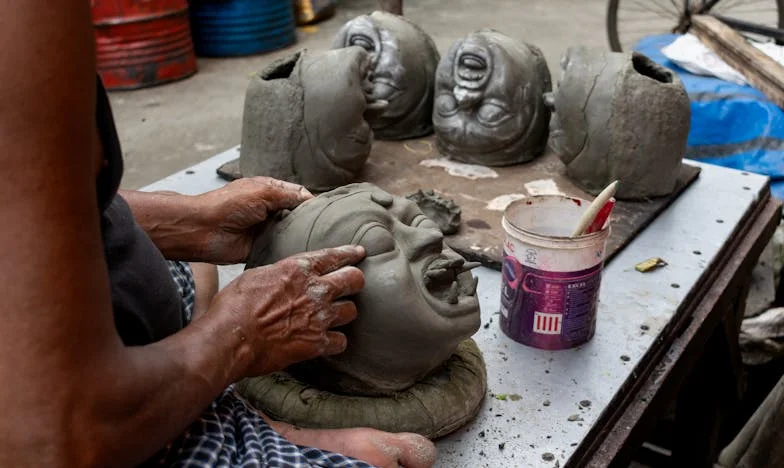Prayers in the Storm: The Sunday That Changed My Family Forever
“Why do you always have to do things your way, Emily? This isn’t how I raised my son!”
Her words sliced through the air, sharp as the carving knife I gripped in my trembling hand. The roast chicken I’d spent all morning preparing sat untouched at the center of the table, steam rising in vain hope of drawing us together. My husband, Mark, stared at his plate, jaw clenched. My daughter, Sophie, fiddled with her napkin, eyes wide and uncertain. And my mother-in-law, Barbara, sat across from me, her lips pressed into a thin, disapproving line.
It had started, as it always did, with something small. Barbara didn’t like that I set the table with the blue plates instead of the white. She didn’t like the way I seasoned the chicken. But today, her criticisms dug deeper, and I felt every word like a personal failure. My hands shook as I tried to steady myself, to say something—anything—to keep the peace.
“Barbara, I—”
“No, Emily. You never listen. You just do whatever you want, and you don’t think about tradition or family.”
Mark looked up, his voice barely above a whisper. “Mom, please. Can we just have one Sunday without fighting?”
Barbara ignored him, her gaze fixed on me. “You’re tearing this family apart.”
My heart pounded in my chest. Tears burned behind my eyes, but I refused to let them fall. Not here, not in front of her. I stood, the chair scraping painfully against the hardwood floor. “Excuse me,” I managed, my voice cracking, and hurried toward the bathroom. I barely made it before the sobs broke free, echoing off the cold tile walls.
How did we get here? When I married Mark, I thought love would be enough. I thought his family would become my family, that we’d build something beautiful together. But Barbara never let me forget that I wasn’t her choice for her only son. For ten years, I tried to win her over—hosting holidays, making her favorite desserts, even letting her rearrange my own kitchen. Nothing was ever enough.
I stared at my red, blotchy face in the mirror. I thought of Sophie, caught in the crossfire. I thought of Mark, always trying to keep the peace, always pulled in two directions. I thought of the prayers I whispered at night, asking for patience, for strength, for some kind of peace.
I heard a soft knock. Mark’s voice, gentle: “Em, please come back. Sophie’s scared.”
I took a deep breath, wiped my eyes, and opened the door. Mark pulled me into a hug, his strong arms a brief shelter from the storm. “I’m sorry,” he whispered. “She shouldn’t talk to you like that.”
“It’s not your fault,” I said, but the truth was, I blamed him just a little. For not standing up to her. For letting this keep happening. For making me feel like an outsider in my own home.
We returned to the table in silence. Barbara sat rigid, her hands folded in her lap. Sophie glanced between us, her small voice barely audible. “Can we say grace?”
It was Sophie’s idea, a last, desperate attempt to restore some sense of normalcy. We joined hands, mine clammy in Mark’s warm grip. Sophie led us in prayer, her words simple and sincere: “God, thank you for our family. Please help us love each other, even when it’s hard.”
The silence after was heavy, but something in me shifted. I looked at Barbara, her face drawn and tired. For the first time, I saw more than just criticism—I saw her fear, her loneliness, her grief over a family that didn’t look the way she imagined.
After lunch, Barbara lingered in the kitchen as I scraped plates. She hesitated, then spoke, her voice softer than I’d ever heard. “Emily… I know I can be hard on you. I just… I miss how things used to be. Before my husband died. Before Mark moved away.”
I set the plate down, my anger draining away, replaced by something like understanding. “I know it’s hard, Barbara. It’s hard for me, too. I just want us to be a family.”
She nodded, tears glistening in her eyes. “I’m sorry.”
It wasn’t a perfect reconciliation. There would be more Sundays, more arguments, more moments when I wanted to run away and never come back. But that day, something changed. I learned that forgiveness isn’t a one-time thing—it’s a choice you make over and over, even when it hurts. I learned that sometimes, the people who hurt us the most are the ones who are hurting, too.
We don’t talk about that Sunday much. But every time I set the table with the blue plates, I remember that storm—and the quiet, stubborn hope that carried me through it.
Some days I wonder: Can love really heal the wounds we carry? Or are some scars just part of being a family? What do you think?
